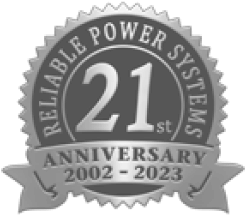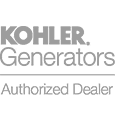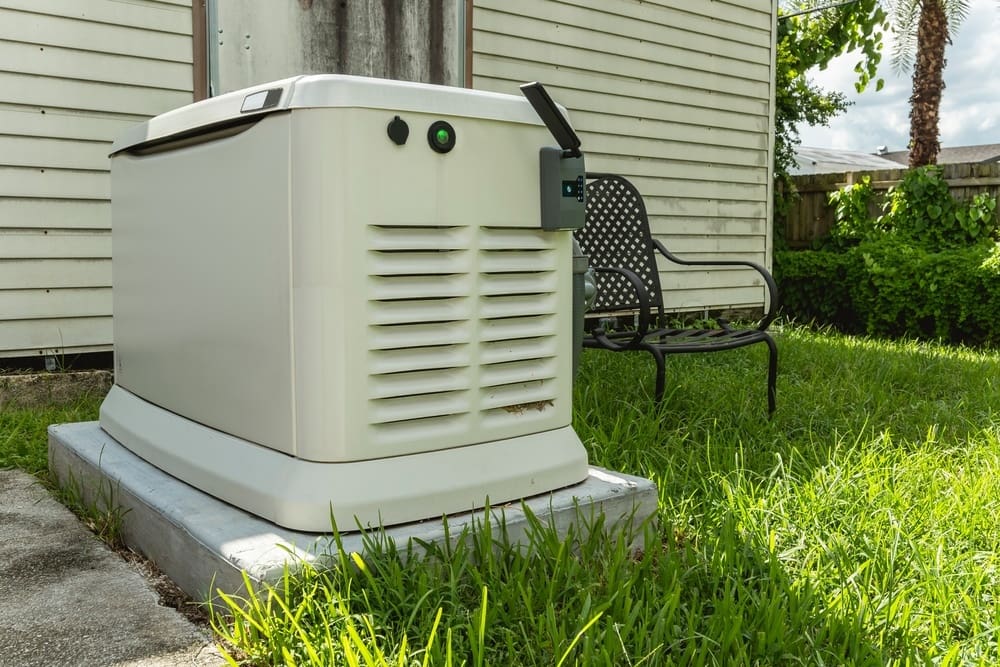
Whether a portable unit or a larger standby installation, back-up generators play a vital role in protecting your daily comfort. However, what happens if it’s raining? Can generators get wet? We have created an outline that explains how weather affects your backup generator and what you should do when operating your unit when it rains.
Will Rain Damage a Generator?
The short answer is yes, rain can damage your generator, but modern advancements in generator design have come with various forms of weather resistance. For example, some units are installed with weather-resistant covers that block any form of water seepage onto the generator components.
If you are unsure whether your unit has the needed protection, always contact our team of electricians for a comprehensive inspection and possible solutions to safeguard your generator.
Safety Measures to Take When Operating a Portable Generator in the Rain
Running your generator during rain showers or storms has plenty of inherent hazards, from the potential of slipping and falling to possible electric shocks.
To better shield yourself when operating your portable unit, take these safety measures:
- Always read the generator’s owner’s manual to ensure it can be run under rainy conditions.
- Consult with a professional electrician during a maintenance check to determine whether it is safe to connect the generator to your home’s electrical wiring.
- If possible, place your unit on a dry, level surface under a shelter (awning, etc.).
- Ensure the unit is 20 feet away from your home or business to prevent the spread of carbon monoxide from the generator fumes.
- Only use cords and appliances that are rated for outdoor use.
- Do not plug the generator into indoor outlets; you risk causing electrical hazards such as backfeeds.
Read More: Top Reasons Your Backup Generator is Making Loud Noises
What Happens if a Generator Makes Contact with Water?
Residential and commercial standby generators should not get wet and it’s important to be aware that water can ruin components like the engine. So, if you find moisture on your system, quickly dry it off using a towel. Built-in weather resistance is helpful, but there are still risks from placing it on wet ground. Make sure your installation is placed high off the ground using items like boards or blocks to create a platform.
If your generator is installed in an enclosure, it is essential to ensure the space is dry and well-ventilated. Without these factors, constant exposure to moisture destroys your unit components, leaving you with a big piece of inoperable equipment.
Proactive maintenance can help save you from a sudden replacement expense. When expecting rain, make sure to:
- Place your generator underneath some form of shelter
- Consistently check your unit’s components to make sure they are dry and in working condition
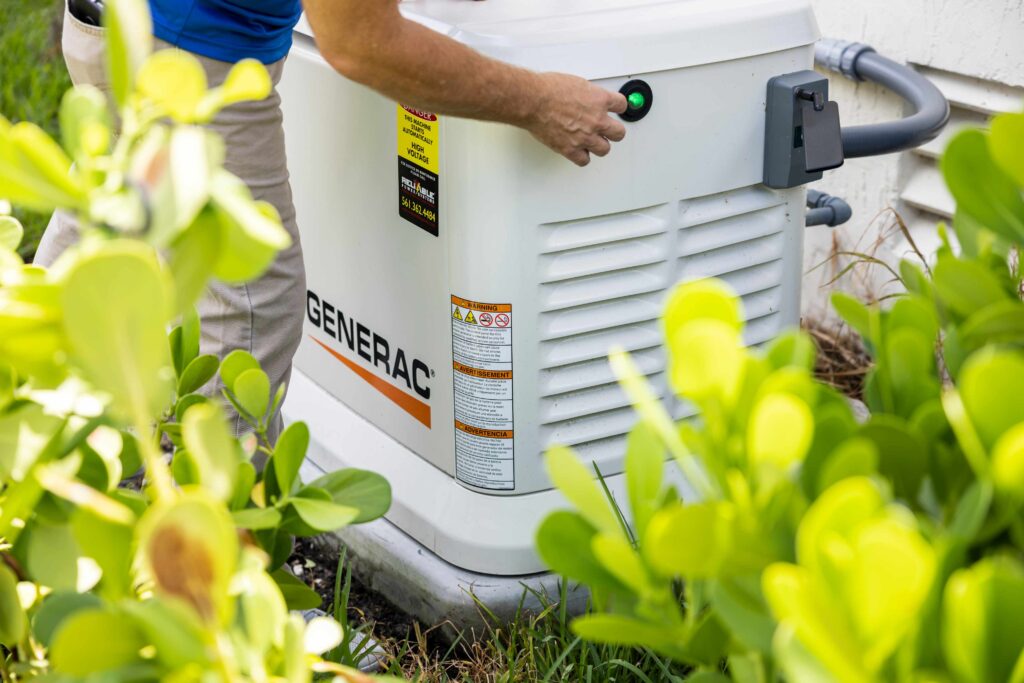
How Can I Protect My Generator from Rain?
There are two key ways to protect your generator when operating in the rain: keeping the unit well-ventilated and watching out for harmful fumes from the equipment.
Maintain Effective Ventilation
Your generator produces carbon monoxide from the exhaust vents during operation. By having enough ventilation, you don’t risk carbon monoxide poisoning.
When using the unit in the rain, ensure it is protected with shelter. If you use a tarp, ensure it is waterproof and securely fastened to prevent your generator from getting wet. Also, when using a tarp be careful not to cover the exhaust.
Watch Out for Harmful Fumes
The first thing you should always do when using your generator is make sure it’s running outside. The carbon monoxide produced when a generator runs can be deadly when spread in a limited space like your home. Keep your unit spaced away from flammable items and positioned at least 20 feet away from your property to avoid potential carbon monoxide poisoning.
Additionally, make sure the generator you have running has the appropriate rating for the power you need. Without the proper rating, you risk overloading your generator and causing an electrical fire.
Read More: How Long Can a Generac Generator Operate Continuously?
Where Can I Store My Portable Generator During a Storm?
It’s essential to store your generator in a safe place. A garage is not a good place to store it since it does not have ventilation. Place your generator outside in a well-ventilated area away from moist ground.
If you have no enclosure, you can protect it with generator tents or tarps, but make sure they are secured against blowing away in heavy wind.
Once your generator is stored and secured, make sure it is full of fuel and plug it into your home surge protector, preventing possible damage from lightning strikes.
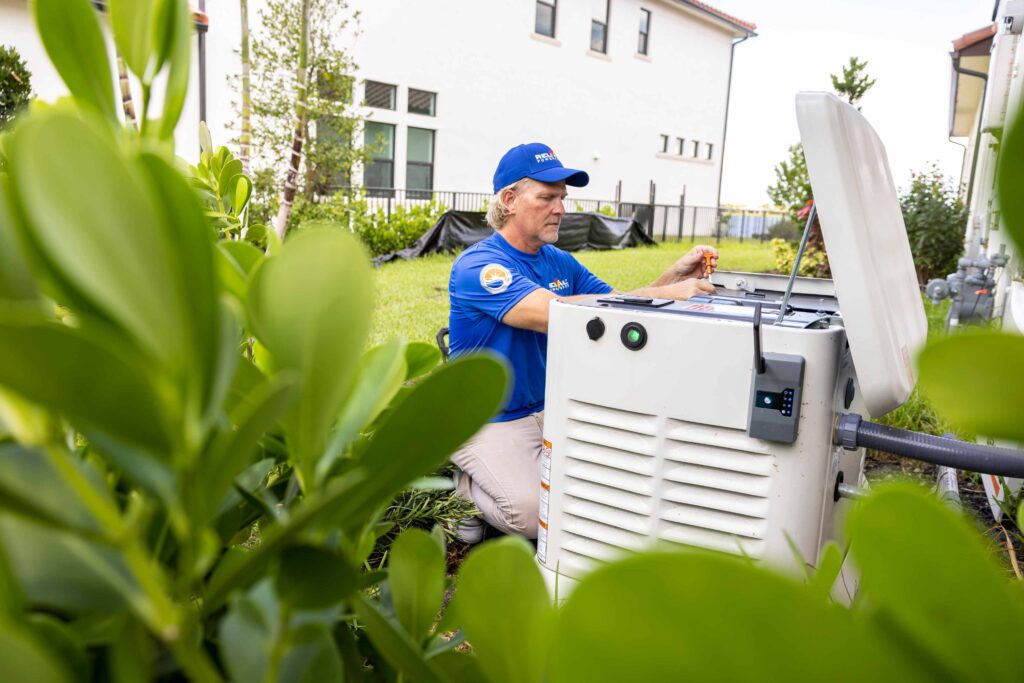
Risks of Running a Generator in the Rain
While generators provide a great backup power source, using your unit in the rain comes with plenty of risks. Common risks associated with using your generator in the rain are:
- Shock Hazard: Using a generator in the middle of rain increases the risk of sparks and electrocutions due to the excessive moisture and high voltage, creating an abnormal electrical flow.
- Short-Circuiting and Explosions: Water may seep into the engine if it’s operating in the rain. The fuel used inside the engine is flammable when in contact with water, risking a short circuit but also potentially causing the unit to explode.
- Ruin the Generator: The internal components of the generator are vulnerable to getting wet, risking the potential for short-circuiting and destroying the unit’s functionality.
- Destroy Other Appliances: In the event of a short circuit, the damage can extend to the valuable appliances that your generator is supporting.
Professional Generator Repair and Maintenance Services
Your generator is your electrical safety net when the weather takes a turn. Taking the proper precautions for rainy-day operations keeps your backup power going strong and, most of all, safe. Although if your generator isn’t starting, it’s time to call the electricians from Reliable Power Systems.
Our team of trained electricians offer trustworthy generator repair services in South Florida. Our experts perform in-depth inspections of your generator, diagnosing possible issues and providing the needed generator repairs and maintenance to restore functionality. If your system cannot be fixed, our staff members also provide reputable generator replacement services for homeowners and businesses.
We are committed to offering fast and convenient generator installation services in Cape Coral, Florida along with the surrounding areas such as Boca Raton, Fort Lauderdale, and Delray Beach. Whether it’s a portable generator or a larger standby installation, our crew keeps your backup power running strong, rain or shine.


